Solar energy is great, and many proponents of clean, renewable energy can’t stop talking about it. It’s the same with solar companies; they’ll tell you about the rising cost of electricity from traditional sources and cap it off with the ‘going solar can save you thousands of dollars’ sales pitch.
And since they aren’t exactly lying, going solar seems like a no-brainer for any homeowner out there. I mean, saving the planet and your wallet at the same time seems like a good enough deal.
But before the hype swallows you and has you calling an installer, you might want to pause for a moment and think. The benefits of solar energy may be real and proven, but how much of a smart investment will getting solar panels to be for you?
See our related article where we break down the Advantages of Solar Energy. Everything you need to know about solar panels and what they have to offer.
The cost of solar panels
- Any other Initial Cost
- Are you planning to move out soon?
- How much is your electricity bill?
- How much energy do you consume?
- How much sunlight does your local area receive?
- Federal and local governments incentives
- Are you buying or leasing?
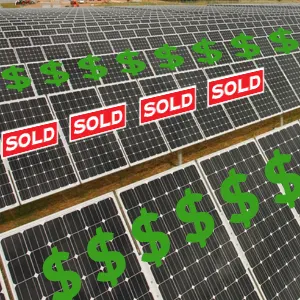
Today, there‘s no doubt that the cost of a solar panel system is cheaper than ever. There has been a whopping 70% drop from how much it cost at the turn of the last decade and about a 20% drop over the past five years. Prices are expected to drop in the coming years but so far, 2021 is the cheapest year to go Solar.
Even then, the upfront cost of purchasing solar panels is still relatively high. Depending on your state, the price of the average panel system ranges between $15,000 and $24,000. Fortunately, solar panels don’t come with a lot of maintenance needs. What you pay from the start will account for almost every penny you ever have to pay for your panels.
But 15,000 to 24,000 dollars is still a lot of money. So much so that you’ll want to make sure it’s worth paying every penny. And is it?
Well, that will depend on the following factors;
Any other initial costs
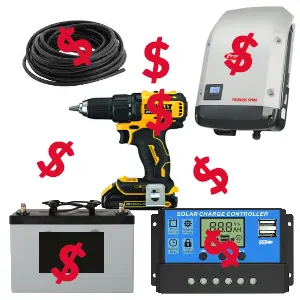
After buying solar panels and paying the installation fee, you should be good to go. But that’s not always the case. During the initial site survey, the solar company may discover things that significantly change the outlook of the project. These include electrical upgrades, roof repairs, tree removal, and any other usage factors that need to be calculated into the project.
If such are identified, they’ll probably raise your total installation costs to a much higher cost than you may have estimated.
Are you planning to move out soon?
A lot goes into installing a solar panel system in a home. It’s a relatively permanent fixture designed to stay in the house for the next 25 to 30 years. Therefore, if you’re planning to move to a new house soon, it’s not worth spending on a new panel system for your current home.
However, the U.S Department of Energy says that buyers are willing to pay a premium of around $15,000 for a home with a solar array. So, if you see yourself moving out and selling your home some seven or eight years down the line (more on why later), installing solar panels may be one of the best moves you ever make.
A situation ‘technically similar’ to moving out is replacing your roof. If there are less than five years left on your roof’s warranty life, you might want to wait until after you’ve replaced it before getting solar panels. This is because;
- Installing panels on an aging roof can be quite risky
- When it’s finally time for replacement, solar panels make the process a little more complicated and more costly than it should be.
But not many people will smile at the thought of having to wait a couple more years. Fortunately, you don’t have to; there may be a way to make the entire process worth your while. Depending on where you live, there are solar installation companies that operate with local roofing companies. This arrangement allows homeowners to get simultaneous roof replacement and solar panel installation services at a package deal. Sweet.
How much is your electricity bill?
Saving money on your electricity bill is one of the biggest allures of solar energy. After all, the less grid electricity you use, the better for your monthly utility bills. While this is mostly true, it will also depend on how much you pay to use grid electricity. The higher the price, the more you’ll save by switching to solar energy.
This price, measured in cents per kilowatt-hour (kWh) consumed, varies significantly depending on the location. Some areas pay as high as 20 cents per kWh, while others pay as little as 8 cents per kWh. Currently, the cost of solar electricity is around 6 cents per kWh.
The bigger the difference between the two, the higher your system’s return on investment (ROI) will be.
How much energy do you consume?
Reviewing your electricity bill should also tell you how much energy you consume in kWh. This is an important consideration as it determines the size of solar panels you’ll need to supplement your power needs.
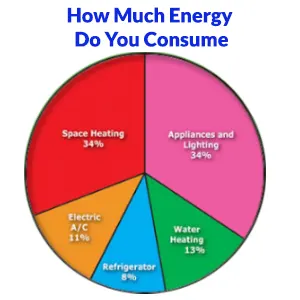
Those with high energy consumption rates need to invest more money in bigger solar power systems than those with lower rates. Ideally, the system should be large enough to supplement their power needs in such a way that brings significant savings to the homeowner. This justifies the decision to invest in a solar energy system.
Otherwise, using an underpowered PV installation that goes off after an hour or two of use is a total waste of money and time.
Therefore, always go big when the opportunity presents itself. Bigger solar panel systems may cost more, but they also carry more savings in the long run.
How much sunlight does your local area receive?
Sunlight sits at the core of solar energy, and thus, solar panel systems need an area where they are receiving adequate solar radiation. While solar energy can be harnessed almost anywhere in the country, the intensity of sunlight will influence the size of the solar panel you install in your home.
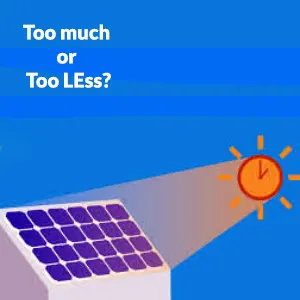
The more sunlight your area receives in a day; the more electricity your panels will generate. Therefore, places with high-intensity sunlight, like the Southwest, are ideal for solar power generation. The rich solar resources make it justifiable to invest large amounts of money in solar energy systems, which explains why the region is home to most utility-scale solar power facilities in the country.
The rest of the country may not receive as much sunlight as the Southwest, but it’s still enough to power home solar systems. These differences in sunlight intensity only mean that some people receive their returns on investment at a much faster rate than others.
People living in cloudy climates may also need to invest in more solar panels as their efficiency drops when the sunlight is blocked. Depending on your energy needs, investing in solar energy may not be the best of decisions.
Federal and local governments incentives
The federal government recognizes that the upfront cost of solar panels is still quite high. Therefore, it offers a 26% residential federal tax credit for all solar installations completed before 31st December 2022. This means that if you buy a solar panel today, 26% of the total cost of installation will be deducted from your income tax when you file your taxes. Depending on the size of your installation, this can be a lot of savings.
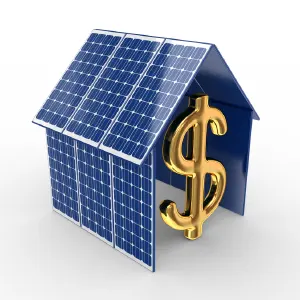
However, note that the federal tax benefit is non-refundable, i.e., you can’t get these savings in the form of a refund. It can only be credited to your taxes. Also, the tax credit will be reduced to 22% in 2023 and removed entirely from 2024. There is a chance that Congress will renew it after 2024, but that’s not assured.
Local governments also offer additional credits, but these will depend on your location. They may come in the form of property tax exemption, cashback, expedited permits, waived fees, and so much more.
Therefore, it’s always a good thing to look for solar incentives and rebates in your state. Depending on what’s on offer, they help lower the initial costs of solar installation and thus, make the investment justifiable.
Are you buying or leasing?
Since buying a solar panel in cash costs a lot, many people are tempted to lease. It’s an option that allows homeowners to avoid the high initial installation costs of solar. But if you want to enjoy the solar savings to the fullest, buying is the best way to go. It makes the homeowner fully eligible to receive incentives and rebates from the federal government, state administrations, and utilities.
Verdict
Solar panels are worth their costs for most people. So if everything looks great for you, the final step left is to call a solar system installer. But before you call the first number that comes your way, consider other installers.
Comparing solar installers is the best strategy to getting a good deal on your initial investment in solar. Experts generally advise that you should get at least three quotations from different solar providers before you settle on one.
